
The Pirate Flag
| ||||||||||||||||||
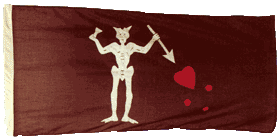
Edward TEACH, known as BLACKBEARD Half-devil, half-skeleton, holding a sand glass and pointing a spear towards a red heart. |
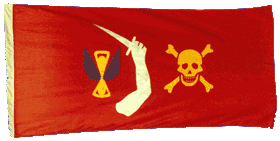
Christopher MOODY The sand glass is a common emblem on pirate flags. On Moody's one, as on numerous tombs, the sand glass has wings to accentuate the idea of the time's rapid flow. |
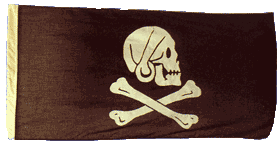
Henry EVERY Every's ship, the Fancy, showed a skull with a bandanna and a buckle ear, which became popular elements of the pirate's outfit. |
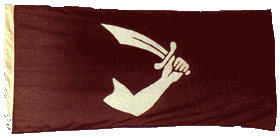
Thomas TEW The sabre always symbolised strength. Thomas Tew took this symbol for his flag. Was it a good choice to choose this scimitar, because it was this kind of sabre who cut his head during the attack of the Indian ship Futteh Mahmoom, in 1695. |
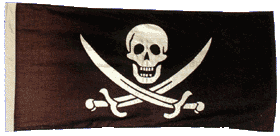
Jack RACKAM, known as CALICO JACK |
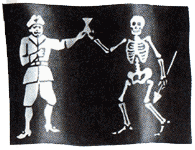 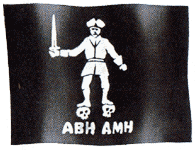
Bartholomew ROBERTS He chose to clink glasses with Death. But its second flag showed two skulls, one marked with ABH, "A Barbadian Head", and the other with AMH, "A Martinican Head", in reference to the oath he made to himself to take revenge from those two Caribbean islands' peoples who dared to draw up against him. |
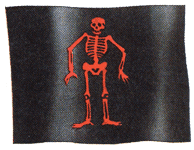
Edward LOW |
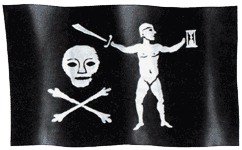
Walter KENNEDY |
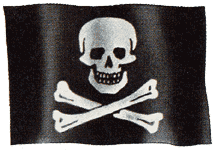
Edward ENGLAND |
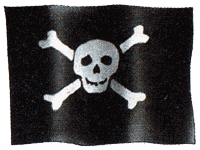
Richard WORLEY |
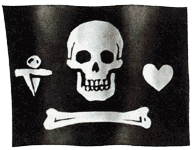
Stede BONNET |
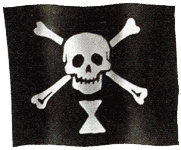
Emmanuel WYNNE |

Christopher CONDENT |
|
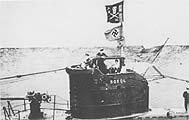 The pirate flag is still used by English submarines returning to their base. It is a tradition dating from the World War I, where a submarine's crew raised this flag when they successfully accomplished a mission.
The pirate flag is still used by English submarines returning to their base. It is a tradition dating from the World War I, where a submarine's crew raised this flag when they successfully accomplished a mission.
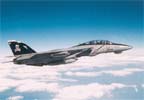 American pilots have used the Jolly Roger flag on their planes since January 1rst, 1943. The skull and crossbones flag decorated a variety of F4U Corsair planes to the F-14 Tomcat of nowadays.
American pilots have used the Jolly Roger flag on their planes since January 1rst, 1943. The skull and crossbones flag decorated a variety of F4U Corsair planes to the F-14 Tomcat of nowadays.
With many thanks to Olivier Rolko for his english translation help from https://www.pirates-corsaires.com/pavillon.htm
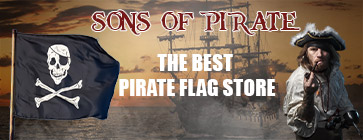
PIRATE FLAG STORE
Ahoy sailor! Get a Pirate Flag from the Sons of Pirate Shop and become a real pirate of the Caribbean. Choose from our large collection of Jolly Roger flags that belonged to famous pirates.

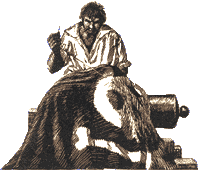
 French version -
French version -